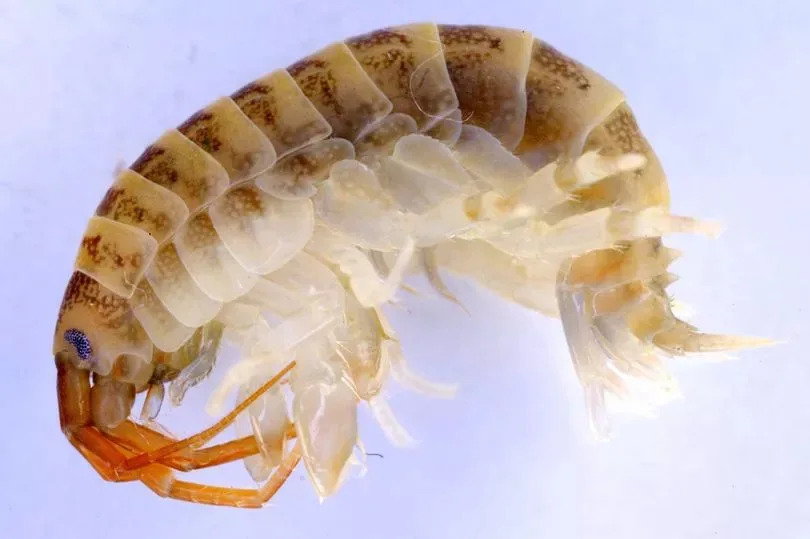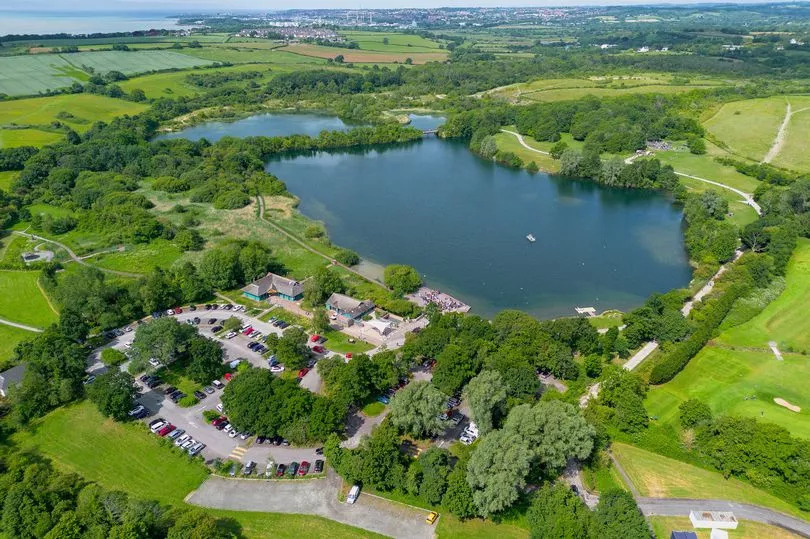Concerns have been raised by members of the Vale of Glamorgan community after DNA testing results suggested that killer shrimp might be living in the water at Cosmeston Country Park.
Dikerogammarus villosus, more commonly known as killer shrimp, are an invasive species that have the capability to cause reduced biodiversity and the extinction of local species. In August, 2025, testing done by Natural Resources Wales suggested that the species might be present in the lakes at the park in Penarth.
Killer shrimp are native to eastern Europe but have spread throughout lakes and rivers in western Europe, first being detected in Wales in 2010.
The species is invasive and poses ecological threats in freshwater environments. For the biggest stories in Wales first, sign up to our daily newsletter here

A so-called ‘killer shrimp’ -Credit:PA
A spokesperson for Natural Resources Wales confirmed the possible presence of the crustacean but said further testing would need to take place to confirm.
They said: “We can confirm that environmental DNA testing in August, 2025, detected dikerogammarus villosus at Cosmeston Lakes.
“These results suggest the species may be present, but further checks are needed, so we’ve asked the Vale of Glamorgan Council to carry out physical surveys to confirm.”
This summer the Vale of Glamorgan council faced scrutiny from residents as Aqua Park opened on the east lake at the country park for eight weeks. There were a number of protests and a petition was set up as concerns were raised regarding the biosecurity of the lake and the effect the inflatables course attraction might have on wildlife.
Before its opening in July, the council confirmed an ecological assessment undertaken by an independent local firm and Natural Resources Wales determined that the water park “will have no significant negative impact on local birdlife or water vole populations.”
The council has said it is continuing to test the lakes to ensure that an accurate result is found to determine whether there are killer shrimp in the water.
It said: “Testing is continuing to confirm if the species is present or if a false positive has occurred through DNA testing as there are several similar non-invasive species which can trigger this.
“Physical sampling of the lake will continue over the winter to try and establish if the species is present and further DNA sampling will also be undertaken.”
No live or dead samples of the shrimp have been found and so far the only “indication of its possible presence is through initial DNA testing of the water.”
They continued: “Given the proximity of Cosmeston to other aquatic environments, the risk of further introductions remains high. To mitigate this, the council enforces strict biosecurity protocols for all lake users, including pre and post-use procedures. These measures were rigorously applied during the recent Aqua Park trial, demonstrating our commitment to preventing further spread.”
Natural Resources Wales has advised the council to “continue strict biosecurity measures across the site, supported by clear public guidance on equipment cleaning and water access, to help prevent the spread of invasive species.”
